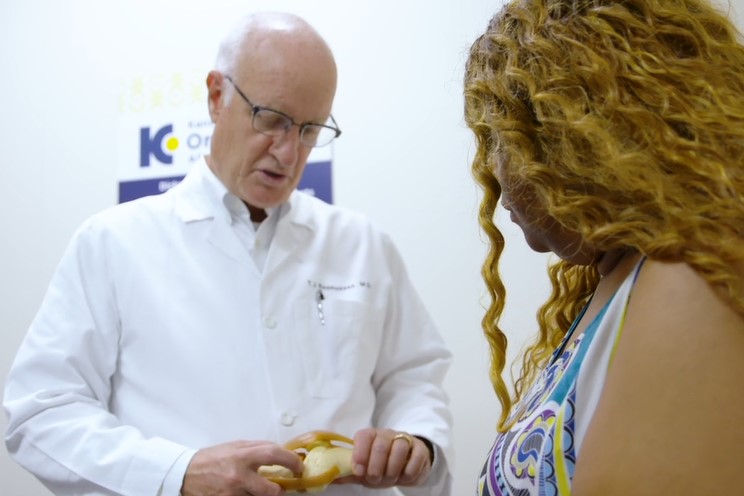
Persistent shoulder pain can significantly impact your ability to complete everyday tasks and essential work duties. If shoulder pain is interfering with your life, it’s crucial to seek evaluation and treatment from a qualified orthopedic provider.
Kansas City Orthopedic Alliance is the Midwest’s premier provider of orthopedic care. As the largest orthopedic practice in Kansas City, we treat thousands of patients each year across our 5 locations: Overland Park, Leawood, Belton, Kansas City, and Blue Springs.
In this blog, our experts will discuss your options for torn labrum treatment in Kansas City.
Understanding Labral Tears
The labrum is a ring of cartilage that lines and reinforces the shoulder joint. Labral tears can happen during a dislocation, repetitive overhead arm movements, or while carrying heavy objects. Common symptoms of a labral tear include:
- Pain in the shoulder
- Catching or locking sensations
- Weakness and instability
- Limited range of motion
Torn Labrum Treatments
At KCOA, our providers start with conservative, nonsurgical treatments whenever possible. Most labral tears can heal with a treatment plan that includes one or more of the following treatments:
- Rest and ice
- Activity modification
- Physical therapy
- Anti-inflammatory medications
- Corticosteroid injections
If you’ve tried the above treatments and you’re still experiencing pain, it might be time to consider surgical labral repair in Kansas City. Your KCOA provider will help you determine if this surgery is necessary, and they will give you all the information to make a well-informed decision about your care.
Visit KCOA for Torn Labrum Treatment in Kansas City
At Kansas City Orthopedic Alliance, we’re dedicated to creating a superior patient experience for all. We’ve helped thousands of patients treat their pain, restore their function, and improve their quality of life.
For a thorough evaluation, call us at (913) 319-7600 or schedule an appointment today.
Wondering what to do about shoulder pain, but don’t know where to start? Use our symptom tracker for treatment recommendations.


